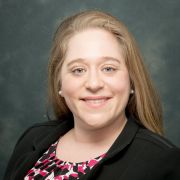When Marg Hay, Monash University, and Holly Gooding, Harvard Medical School, asked me to write a blog post about my experience in the Harvard Macy Institute Systems Approach to Assessment in Health Professionals Education course, my immediate response was ‘of course, but why?’ The response was surprisingly simple. As a new scholar, I am now part of the Harvard Macy Institute community, and thus, my reflections are respected and valued.
In many organizations, there exists an indisputable hierarchy where those with more experience and knowledge have more power. At Harvard Macy, nothing could be farther from the truth. The faculty impart upon us their wisdom and experience by leading sessions and breakout groups, but then step back into the role of learner for their own professional development. Many faculty stay for the entire course and attend every session. Not only does this show respect for their own learning, but also for the other course faculty. As an example, Louis Pangaro, Uniformed Services University, course co-director, was one of my journal club faculty leaders. He also attended at least three of the same breakout sessions as I did. As a relative newcomer to medical education, listening to his questions and comments – and thinking how similar many were to my own – was empowering as I embark on my own journey in medical education.
Harvard Macy is unique in that learning and networking does not turn stop between sessions. When a speaker concludes and the coffee break commences, conversations begin and don’t end until the break is over. ‘What do you do?’ ‘Where are you from?’ ‘What did you take away from the last session?’ ‘What project are you working on?’ These conversations take place between and among faculty and scholars. Want a faculty member to explain something you heard earlier in the day or provide guidance on your project? Just ask. Every minute you are at Harvard Macy is an opportunity to meet someone new, discuss topics of interest, and grow as a professional. Embedded in the Harvard Macy culture is the basic premise that all scholars will learn and succeed.
As a learner, one of the broader connections I drew from this course is how medical education and quality improvement are interconnected. John Norcini, FAIMER, taught us that when designing a program of assessment, seven considerations must be taken into account: purpose, educational effect, resources, competency, context, tools, and quality control. These are subsumed under the umbrella of your system, and knowing your system is critical to creating an assessment system that is beneficial to all stakeholders – learners, faculty, administrators, and accrediting agencies. An inconsistent assessment system is ultimately unprofessional and violates our duty to our students and society. A systems-based approach to assessment understands that organizations are in constant motion, and as such, what worked yesterday will not by default work tomorrow. When assessment is done with an eye towards improvement, we respect our learners and ourselves and hold ourselves to a high standard of professionalism. Importantly, I would not have fully realized this association if it weren’t for my involvement in Harvard Macy. This represents just one of many connections I will carry with me as I move forward in my career.
Interested in starting your own Harvard Macy journey? You should know a few things. First, Harvard Macy courses are intense. An average day is easily 10 hours of large group sessions, journal clubs, and breakout groups, followed by a few hours of reading and preparation for the following day. You have to disconnect yourself from the demands of your regular life and embrace all that you can during your time at Harvard Macy. Second, bring a project you truly care about to discuss with your group because in true active-learning fashion, you will spend a lot of time with it. Your project group will be diverse, and the entire team will focus specifically on how to improve your project. As an example, my project group consisted of an associate dean of public health, an assistant dean for graduate medical education, a director of quality improvement, and a director of inpatient internal medicine. Each brought a valuable, unique perspective to my project. This interdisciplinary collaboration, led by our faculty mentors, is a priceless learning experience, and you will leave with a better project. Third, be prepared for new connections between what you know coming in and what you will know coming out. Fourth, know that you will be joining an international community of practice. You are now connected to over 4,000 professionals worldwide who will make time for you because you are part of this network. Through Harvard Macy, I now know health professions educators in Singapore, Japan, Australia, Switzerland, and Dubai, as well as at schools throughout the United States. These connections highlight just how meaningful – and transformative – it is to be a Harvard Macy Scholar.
Kristina Dzara, Ph.D., MMSc


